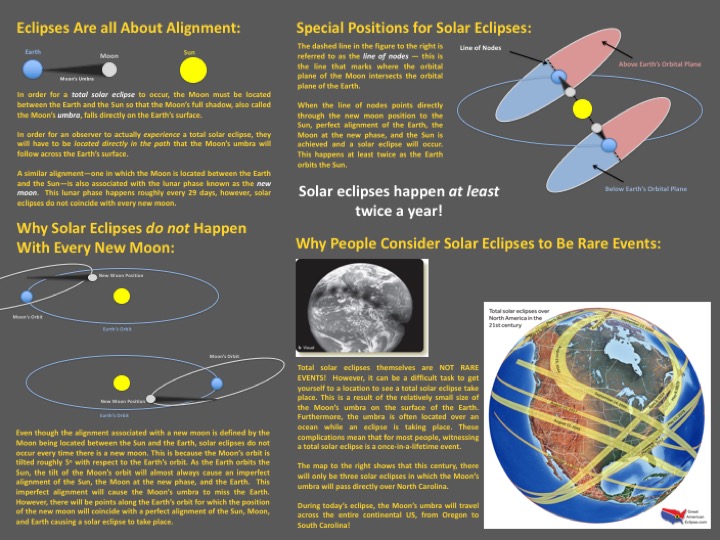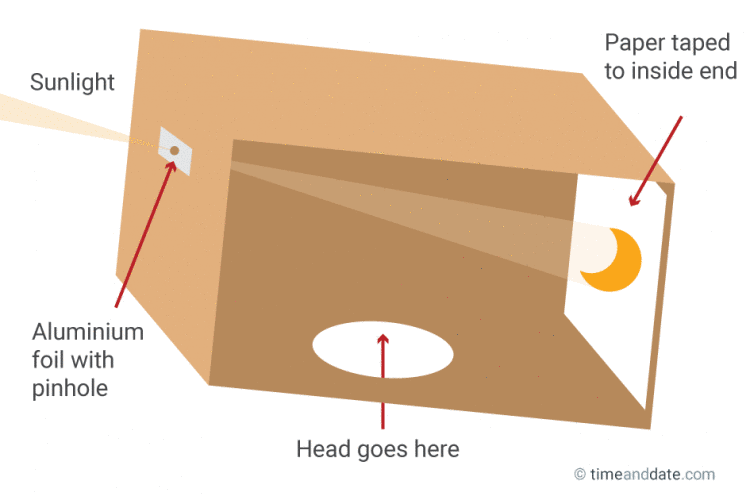Plan Ahead
If you have the means or the plans to travel, be aware that the expectation of additional traffic on the roads in North Carolina on this day is between 1.8 and 7.4 million people. A few things to prepare for the best experience:
- Get to your viewing destination early.
- Expect delays and pack accordingly.
- Bring extra water and food. Fill up your car with gas before venturing out.
- Expect the Blue Ridge Parkway and other rural roads to be busier than normal.
- Expect delays in travel.
- In some areas, cell phone service is not accessible in the mountains, and in some instances phone networks may be temporarily overwhelmed.
- Take a map or print your directions, in case you do not have service.
- Most local hotels and lodgings have been booked for many months. Do not expect to show up and get a room.
- Do not stop or park under a street light to view the eclipse, if you are in a location of totality this will interfere with your visible experience.
- Only view the sun with proper solar viewing glasses.
NASA
Eye Safety -
www.nasa.gov/content/eye-safety-during-a-total-solar-eclipse
Safety -
eclipse2017.nasa.gov/safety
How to watch the solar eclipse
if you don't have special glasses -
https://youtu.be/DS3uXWiV8A4
Safety Guidelines
Proper Use and Safety Precautions:
PLEASE REVIEW
1. Never look directly at the Sun without proper eye protection (for proper eye protection, use glasses with a transmission of ISO 12312-2).
2. Place solar glasses in front of your eyes before looking at the Sun and look away before removing glasses.
3. Inspect lenses before each use - if lens is scratched or punctured discard glasses, they are no longer safe.
4. Do not use/look at the Sun for longer than 3 minutes continuously (take breaks).
5. Do not use binoculars with the solar glasses as the light the binoculars focus can damage your eye, even with the glasses. Do not drive while wearing these glasses.
6. Do not use with diseased eyes or after eye surgery.
7. Discard and do not use after three years.
The College of Arts and Sciences will provide solar viewing glasses for events on campus the day of the eclipse.
For the month of July, the Dark Sky Observatory will be giving away glasses at their free day time events.
For more on safety tips and ways to view the eclipse if you do not have the proper eyewear protection, please watch our educational videos!
How Not to a Watch Solar Eclipse
The following materials should never be used to view a solar eclipse:
- sunglasses of any kind
- color film
- medical X-ray film
- smoked glass
- floppy disks
- Binoculars in front of or behind solar viewing glasses
- A Camera with or without solar glasses, if it has a direct viewfinder
The Sun’s UV radiation can burn the retinas in the eyes leading to permanent damage or even blindness. This can occur even if your eyes are exposed to direct sunlight for just a few seconds. You can use special solar filters to watch the Sun during a solar eclipse, but use the proper type of solar filter that is designed for eclipses. Check that filters do not crack under the Sun’s magnified and focused intensity. Solar filters must be treated with care, or they can quickly become damaged and unsafe to use.
What to look for during the Solar Eclipse


